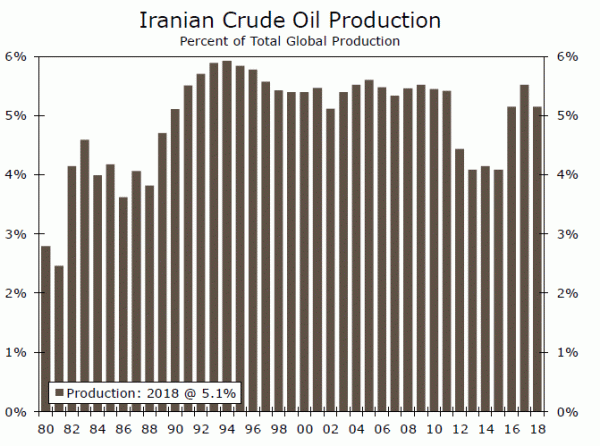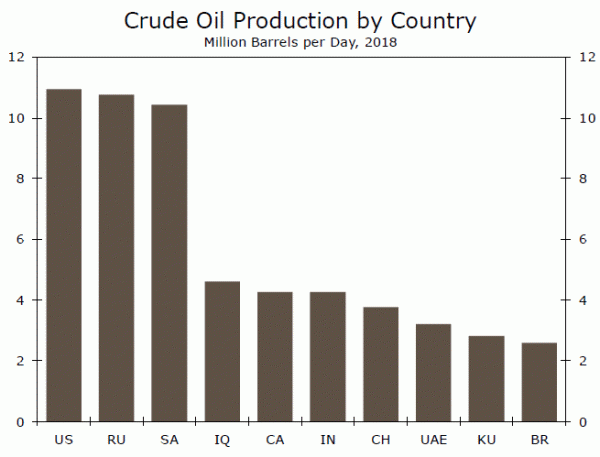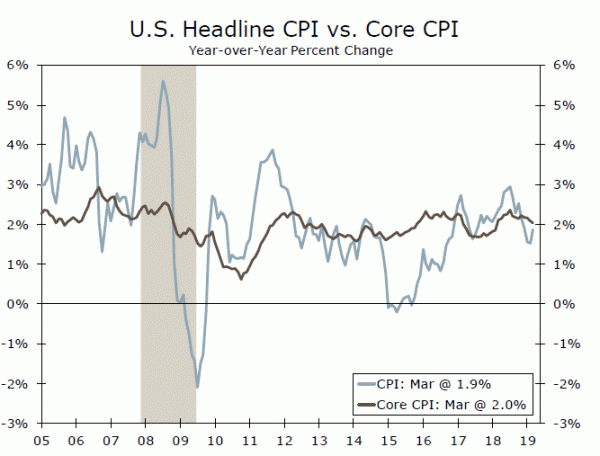Iran Is World’s 6th Largest Oil Producer
The Trump administration announced today that it will not renew waivers that currently allow countries to buy Iranian oil without facing American sanctions. The move is intended to put more pressure on the Iranian regime, which relies on the money that it earns from oil exports to help finance its expenditures. Prices of Brent crude and West Texas Intermediate, which have been trending higher since the beginning of the year, moved up another 2% or so on the news. Does this announcement move have major economic and financial market implications?
Iran currently produces more than 4 million barrels per day (bpd) of crude oil, and it exports nearly 3 million bpd. At present, Iran accounts for 5% of global production of crude oil, which has been its run-rate over the past few decades (top chart). According to the U.S. Energy Information Agency, China buys roughly one-quarter of Iranian oil exports. Other important customers include India, which buys 18% of Iranian oil exports, South Korea (14%), and Turkey (9%). If these countries want to steer clear of U.S. sanctions, they will need to find other sources of oil supply. Will they be able to do so?
As noted above, Iran pumps a bit more than 4 million bpd, which makes it the world’s sixth most important producer of crude oil. But Iran’s production is well below the production levels of the United States, Russia and Saudi Arabia, which all pump more than 10 million bpd (middle chart). Although other producers will not be able to replace nearly 3 million bpd of Iranian oil exports overnight (assuming that U.S. sanctions compel countries to completely stop buying Iranian oil), Saudi Arabia has the capacity to replace some Iranian oil exports. In addition, the United States has been ramping up production significantly in recent years—production has doubled since 2011—and oil prices in excess of $60/barrel encourage American oil producers to drill even more wells.
Oil prices have risen about $20/barrel since the beginning of the year, which already has pushed up gasoline prices about 80 cents/gallon. Gas prices likely will trend even higher, at least in the near term, due to today’s news. Could this rise in gasoline prices lead to higher inflation in the United States? The overall rate of CPI inflation has already edged a bit higher this year (bottom chart) due to the rise in oil prices to date. Our forecast, which has been predicated on the assumption that the administration would continue to take a hard line with Iran, looks for CPI inflation to rise to 2.5% early next year. That said, unless the increase in gasoline prices filters into the ‘core’ rate of inflation, which excludes food and energy prices and which is reflective of the underlying trend in inflation, the Federal Reserve likely would look through any increase in gasoline prices. Consequently, we continue to believe that the Fed will remain on hold for the foreseeable future.



